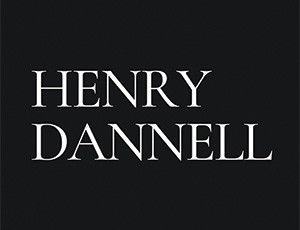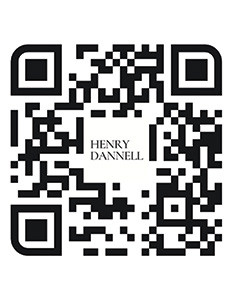*/

By Kem Kemal of Henry Dannell
As a self-employed barrister, your income can vary significantly, due to case timings, the nature of your work, and the accounting methods you employ. These fluctuations, while common in the profession, can pose unique challenges when it comes to major financial decisions like securing a mortgage.
Understanding how your income patterns impact mortgage applications is crucial to presenting a strong financial profile to lenders. With the right approach, you can navigate these complexities and present a clearer picture of your earning potential, making it easier to secure the mortgage you need.
The way income is reported can significantly affect how it appears on paper. For instance, your income might seem lower than it actually is when comparing accrual accounting to cash accounting periods. This discrepancy occurs because accrual accounting recognises income when it is earned, whereas cash accounting recognises it when it is received. As a result, the timing of income recognition can cause significant variations in reported earnings.
Accrual accounting, which records income when it is earned, may show your income more evenly over time, smoothing out the peaks and troughs. However, it might also capture earnings that have not yet been received in cash, which can present liquidity issues. On the other hand, cash accounting shows actual cash flow, highlighting periods of high and low earnings more starkly. This method may more accurately reflect your immediate financial reality but might not give the best picture of your earning potential over the longer term.
The choice between these accounting methods becomes particularly relevant when applying for a mortgage. Lenders often prefer to see stable and predictable income patterns, which can be difficult to demonstrate with cash accounting if income is irregular. In contrast, accrual accounting can sometimes present a more favourable view of income stability, but it requires careful management to ensure it aligns with your actual cash flow.
Mortgage lenders typically assess income to determine how much they can lend. If your income appears lower due to the accounting method used, it might affect your mortgage affordability. This makes the choice between accrual and cash accounting an important decision with substantial financial consequences.
A mortgage adviser who understands the intricacies of accounting for self-employed barristers can provide valuable guidance. They can help ensure that the income figures presented for mortgage applications accurately reflect your true earning potential, which can be the difference between securing a loan and facing rejection. At Henry Dannell, we can support you.
You might take a career break for reasons such as maternity or paternity leave, or other personal circumstances. Such breaks can lead to a significant decrease in income, followed by a sharp increase upon your return to full-time practice. These ebbs and flows are normal but can complicate mortgage applications and financial planning.
In scenarios where a higher borrowing amount is necessary, it becomes even more critical to work with a lender who understands the unique nature of your income. Such a lender will be able to recognise that a dip in income due to a career break is a one-off event rather than a sign of financial instability. They should be able to disregard that particular year when assessing your overall financial health and loan eligibility.
At Henry Dannell, we’ve had the privilege of guiding countless barristers through the intricacies of mortgage applications, ensuring they receive the financial support they need to achieve their goals. By leveraging our deep understanding of the legal profession, the specific income structures of barristers, and our dedicated pilot schemes with lenders designed for barristers, we are able to navigate challenges and secure you favourable terms.
Our expert advisers can guide you through the complexities of fluctuating income and help you present a compelling financial picture.



As a self-employed barrister, your income can vary significantly, due to case timings, the nature of your work, and the accounting methods you employ. These fluctuations, while common in the profession, can pose unique challenges when it comes to major financial decisions like securing a mortgage.
Understanding how your income patterns impact mortgage applications is crucial to presenting a strong financial profile to lenders. With the right approach, you can navigate these complexities and present a clearer picture of your earning potential, making it easier to secure the mortgage you need.
The way income is reported can significantly affect how it appears on paper. For instance, your income might seem lower than it actually is when comparing accrual accounting to cash accounting periods. This discrepancy occurs because accrual accounting recognises income when it is earned, whereas cash accounting recognises it when it is received. As a result, the timing of income recognition can cause significant variations in reported earnings.
Accrual accounting, which records income when it is earned, may show your income more evenly over time, smoothing out the peaks and troughs. However, it might also capture earnings that have not yet been received in cash, which can present liquidity issues. On the other hand, cash accounting shows actual cash flow, highlighting periods of high and low earnings more starkly. This method may more accurately reflect your immediate financial reality but might not give the best picture of your earning potential over the longer term.
The choice between these accounting methods becomes particularly relevant when applying for a mortgage. Lenders often prefer to see stable and predictable income patterns, which can be difficult to demonstrate with cash accounting if income is irregular. In contrast, accrual accounting can sometimes present a more favourable view of income stability, but it requires careful management to ensure it aligns with your actual cash flow.
Mortgage lenders typically assess income to determine how much they can lend. If your income appears lower due to the accounting method used, it might affect your mortgage affordability. This makes the choice between accrual and cash accounting an important decision with substantial financial consequences.
A mortgage adviser who understands the intricacies of accounting for self-employed barristers can provide valuable guidance. They can help ensure that the income figures presented for mortgage applications accurately reflect your true earning potential, which can be the difference between securing a loan and facing rejection. At Henry Dannell, we can support you.
You might take a career break for reasons such as maternity or paternity leave, or other personal circumstances. Such breaks can lead to a significant decrease in income, followed by a sharp increase upon your return to full-time practice. These ebbs and flows are normal but can complicate mortgage applications and financial planning.
In scenarios where a higher borrowing amount is necessary, it becomes even more critical to work with a lender who understands the unique nature of your income. Such a lender will be able to recognise that a dip in income due to a career break is a one-off event rather than a sign of financial instability. They should be able to disregard that particular year when assessing your overall financial health and loan eligibility.
At Henry Dannell, we’ve had the privilege of guiding countless barristers through the intricacies of mortgage applications, ensuring they receive the financial support they need to achieve their goals. By leveraging our deep understanding of the legal profession, the specific income structures of barristers, and our dedicated pilot schemes with lenders designed for barristers, we are able to navigate challenges and secure you favourable terms.
Our expert advisers can guide you through the complexities of fluctuating income and help you present a compelling financial picture.


By Kem Kemal of Henry Dannell


Now is the time to tackle inappropriate behaviour at the Bar as well as extend our reach and collaboration with organisations and individuals at home and abroad
A comparison – Dan Monaghan, Head of DWF Chambers, invites two viewpoints
And if not, why not? asks Louise Crush of Westgate Wealth Management
Marie Law, Head of Toxicology at AlphaBiolabs, discusses the many benefits of oral fluid drug testing for child welfare and protection matters
To mark International Women’s Day, Louise Crush of Westgate Wealth Management looks at how financial planning can help bridge the gap
Casey Randall of AlphaBiolabs answers some of the most common questions regarding relationship DNA testing for court
Maria Scotland and Niamh Wilkie report from the Bar Council’s 2024 visit to the United Arab Emirates exploring practice development opportunities for the England and Wales family Bar
Marking Neurodiversity Week 2025, an anonymous barrister shares the revelations and emotions from a mid-career diagnosis with a view to encouraging others to find out more
David Wurtzel analyses the outcome of the 2024 silk competition and how it compares with previous years, revealing some striking trends and home truths for the profession
Save for some high-flyers and those who can become commercial arbitrators, it is generally a question of all or nothing but that does not mean moving from hero to zero, says Andrew Hillier